My Cultural Diet (April 2024): City Hunter, Hellboy, Shōgun, Tremors

In order to better track my various cultural experiences (e.g., movies, TV shows, books, restaurants), I’ve created the Cultural Diet. Think of it as my own personal Goodreads, Letterboxd, and Yelp, all rolled into one (more info here). Every month, I recap everything that I watched, read, etc., in the previous month.
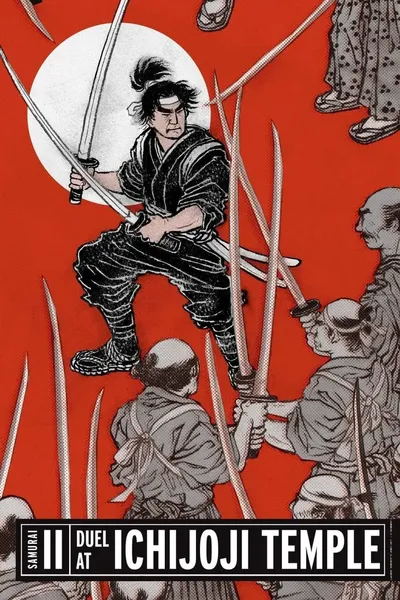
Any film that stars Toshirô Mifune is going to get an extra star simply because the man is so darn entrancing to watch. Even just walking, never mind fighting, he expresses a raw emotion and passion that are impossible to ignore. And his face… few things in cinema are more enjoyable to look at than a classic Mifune grimace or glower. All of these are on full display throughout the second film in Hiroshi Inagaki’s Samurai trilogy. Musashi Miyamoto has been traveling around Japan to develop his samurai skills through dueling. But when he embarrasses the Yoshioka school, he becomes a target of their ire and must try and survive their machinations. Things get even more complicated, though, when women start falling in love with him. Will Musashi choose the love of women? Or will he remain faithful to the blade? The second Samurai movie suffers from being a bit disjointed, especially compared to the first, and the melodrama is hiked up even more by Musashi’s romantic entanglements. Still, it’s a pleasure just to watch Mifune strut and stalk about the screen, katana in hand.
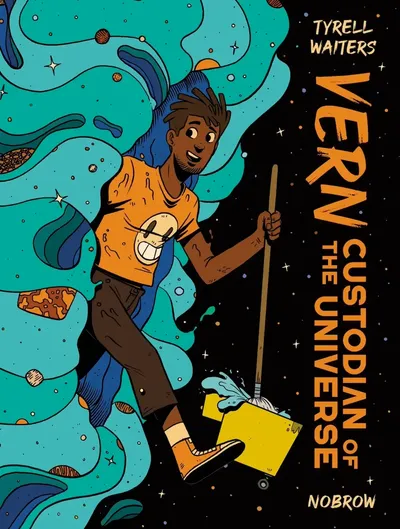
Here’s another comic that I picked up for the title alone. (See also Dracula, Motherf**ker.) Down on his luck and burned out, Vern decides to return to Florida and live with his mom and grandma, who gets him a custodian job at a local science facility. But what seems like a dead-end job soon has Vern cleaning up bizarre science experiments and extra-dimensional anomalies. Oh, and he might have inadvertently set in motion the death of the multiverse. The only solution is to figure out the whole point of existence, so no big deal. Vern: Custodian of the Universe isn’t bad — I love the premise, Vern is a likable enough protagonist, and Tyrell Waiters’ artwork gets delightfully trippy at times — but I also found Vern’s existential conclusions a bit underwhelming and lacking, borderline nihilistic even, though I appreciate the humane spirit in which they’re made. Weirdly enough, Waiters’ comic had me thinking of Jeff Lemire and Matt Kindt’s Cosmic Detective, which is considerably more grim, but also more honest about its philosophical conclusions.
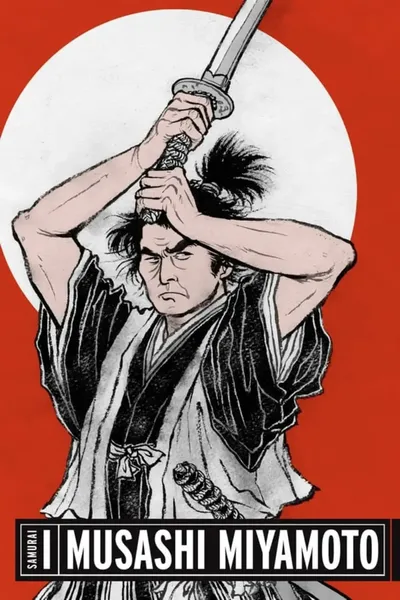
I watched Hiroshi Inagaki’s Samurai trilogy many years ago, and as I recall, I was less than impressed. I now stand ready and willing to recant my previous opinion, of the first film anyway. Sweeping, epic, and deeply melodramatic, this fictional account of the early days of Musashi Miyamoto — arguably Japan’s most famous samurai and swordsman — is centered on a solid performance by the legendary Toshirô Mifune. (Would you expect anything else?) He captures the young Musashi’s boorishness and thirst for glory and then, as the film progresses, his frustration, anger, and regret. Kaoru Yachigusa also delivers as the long-suffering Otsu, who initially resents Musashi for taking her fiancé away from her and then slowly becomes his advocate. Her performance is sentimental to the hilt, but her empathy and lack of guile elevates what could’ve been a thankless and clichéd role. Add in Ikuma Dan’s sweeping score and some gorgeous shots of the Japanese countryside, and it’s easy to see why Samurai I won the Oscar for “Best Foreign Language Film” in 1955.
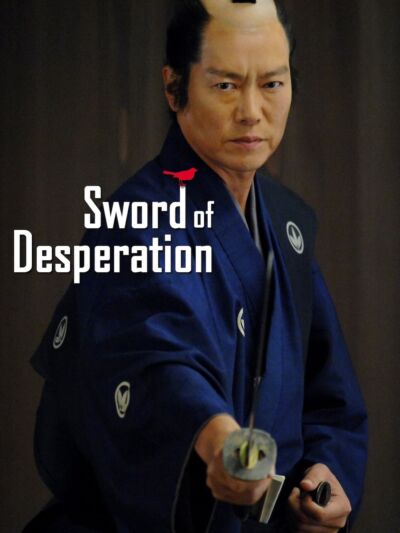
After seeing Shōgun, I’ve been in the mood for more samurai and jidaigeki titles. Hideyuki Hirayama’s Sword of Desperation has been on my list for awhile now, so now seemed like a good time to check it out. Contrary to what the title might suggest, Sword of Desperation is a total slow-burn of a movie, following the life of a samurai who’s imprisoned after killing his lord’s consort in apparent cold blood. Of course, things are slowly revealed to be more complicated than that. Unfortunately, Sword of Desperation is so much of a slow burn that its story ultimately lacks any sense of momentum. When the final — and in hindsight, inevitable — revelations finally come about, it’s actually a bit of a letdown, lacking the emotional import that they certainly feel like they should have.
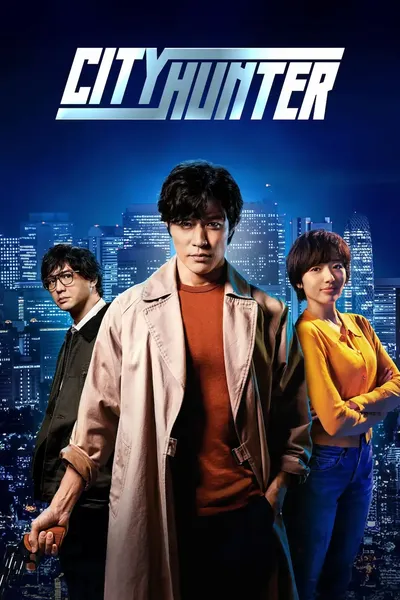
Ryo Saeba is a crack sharpshooter, expert martial artist, and skilled detective feared and respected throughout the Tokyo underworld. He’s also a horny little dork who loses it at even the slightest glimpse of cleavage. Adapted from Tsukasa Hojo’s long-running manga, City Hunter is the perfect example of film that’s juvenile, ridiculous, and over-the-top — which is sometimes its greatest strength, but ultimately, its greatest weakness. To be sure, there are some hilarious scenes and inventive action, and Ryohei Suzuki gives it his all as the perv-y Saeba. (The scene where he cosplays as a cowboy with a crotch horse — yes, I said what I said — is pretty hilarious.) In the end, however, City Hunter is just too over-the-top and uneven for its own good, with a rather perfunctory plot that tries to pull on the ol’ heartstrings when it’d probably be better served leaning into comedy antics.
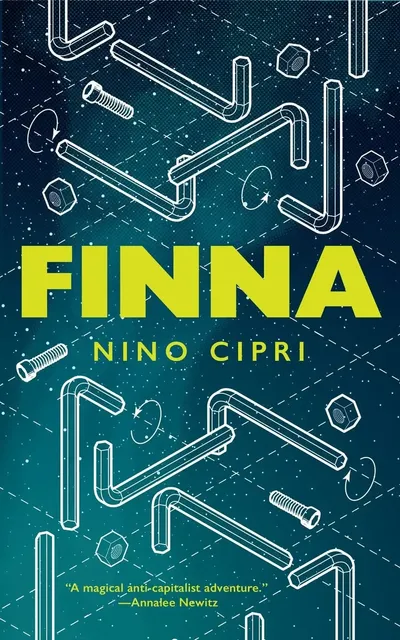
When her co-worker calls in sick, Ava begrudgingly agrees to fill in for him at the IKEA-like big box store where they work. The last thing she wants to do is run into her ex, Jules, but the two of them are forced to work together when an elderly customer accidentally falls through a wormhole in the store and lands in an alternate universe. What ensues is a queer romance, a multiverse romp, and a critique of capitalism, all roll into a single novella that you can read in a single evening. Cipri’s take on the multiverse is clever fun and even thought-provoking at times, but the consistently snarky tone and rather obvious jabs at capitalism and soulless business executives start to feel rote and repetitive even given Finna’s short length.
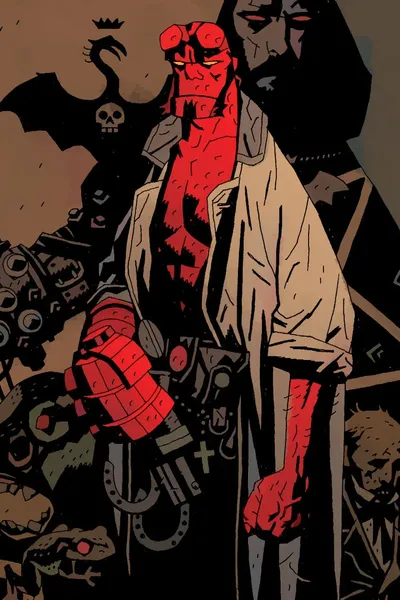
I had only a passing familiarity with Mike Mignola’s iconic series, so when Humble Bundle offered the entire Hellboy collection for less than $20 — Seed of Destruction, Wake the Devil, The Right Hand of Doom, etc. — I jumped at the deal, and have spent the last few weeks delving into the series. Mignola has a lot of fun with the premise, weaving in all manner of mythologies and fairy tales (e.g., Irish, Arthurian, Russian, African) with wild abandon, but also in a way that feels surprisingly coherent. And the inclusion of Lovecraftian beasties and alternate WW2 history certainly doesn’t hurt, either. But what really struck me was Hellboy himself, and in particular, his dogged efforts to hold onto his humanity and avoid the fate spelled out for him. I like a good tragic hero, and Hellboy is a very good tragic hero. That said, the scene of Hell’s mightiest demons lamenting young Hellboy’s discovery of pancakes is one of the most delightful things I’ve read so far this year.
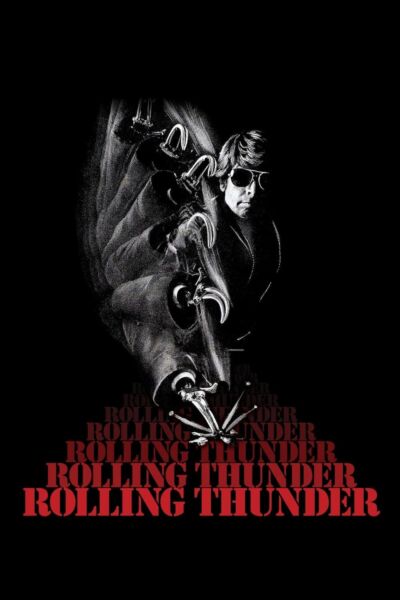
I went into this film knowing very little about it other than it’s one of Quentin Tarantino’s favorites. And it’s easy to see why. On the surface, its story about a Vietnam vet who returns home to San Antonio and subsequently goes on a rampage after his wife and son are killed by burglars, seems like pretty straightforward exploitation fare. And make no mistake, Rolling Thunder does get a bit sleazy in places. But I was intrigued by the little details that it captured about America circa 1973, and even more so as it delves into the protagonist’s psychology as a man unable to reconnect to “normal” life after being a POW. This angle could’ve gone poorly, trivializing the POW experience, but Paul Schrader’s script and William Devane and Tommy Lee Jones’ performances pull it off. The film’s a definite slow burn leading to a bloody and inevitable, if abrupt, climax, which I found interesting, but your mileage may vary.
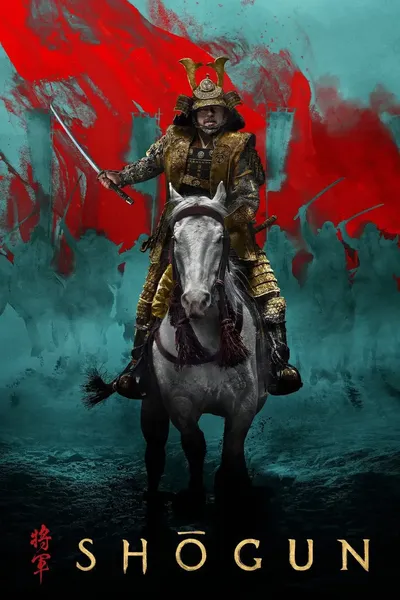
It’s a rare privilege to watch a TV series that’s made with so much confidence, style, and gravitas that you trust it implicitly. You just know it’ll do right by the source material, deliver a stirring and entertaining story, and look great doing so (since TV is, after all, a visual medium). Shōgun is one such series. Based on James Clavelle’s acclaimed 1975 novel, in which an ambitious English sailor shipwrecked in Japan seeks to establish an alliance with a powerful warlord, Shōgun is not light viewing by any means. Its storytelling is dense, delving into the shifting politics of 17th century Japan, the ideological and cultural conflicts between Catholics and Protestants, and the sometimes shocking requirements of placing loyalty to one’s lord and clan above all else. I’ll admit to getting a little lost amidst all of the political maneuvering and conspiracies, but I was never not intrigued, and the series was never less than gripping. Much of that was due to powerful performances from a stellar cast (e.g., Hiroyuki Sanada, Tadanobu Asano, Anna Sawai, Moeka Hoshi), not to mention impeccable production design, costuming, and cinematography that authentically imagines feudal Japan as a land of both great beauty and brutality. Come year’s end, I’m going to be hard-pressed to think of another series that achieves so much.
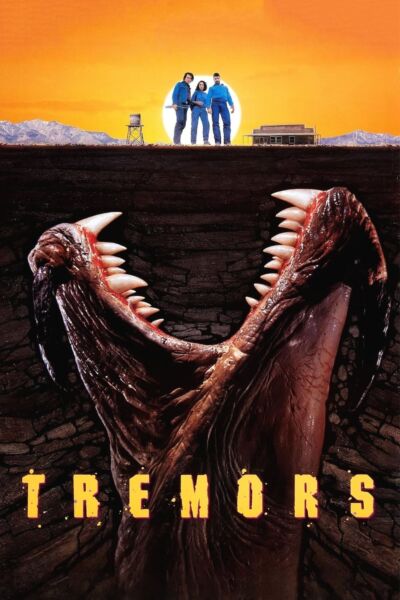
Why do I enjoy Tremors? The answer’s simple, really: Tremors knows precisely what it is — an action/horror comedy about a small desert town terrorized by giant underground worms — and never tries to be anything else. Yes, it’s pretty cheesy, the sort of genre film that dominated late night cable TV in the early-to-mid ’90s, but there’s not a single thing wrong with it. The practical effects still hold up after 34 years, the desert backdrop is equally gorgeous and ominous, the camerawork draws from the Sam Raimi school, and Ernest Troost’s score is delightfully bombastic. And then there are the colorful characters, starting with Kevin Bacon and Fred Ward’s down-on-their-luck handymen who are forced to become giant worm exterminators, followed by Finn Carter as the geologist who helps the town fight back and Victor Wong as an opportunistic shopowner. But Michael Gross, who had wrapped up Family Ties the year before Tremors, steals the show as conspiracy theorist and doomsday prepper Burt Gummer, who ultimately becomes the face of the entire Tremors franchise.

Once I saw the blurb by David Tibet (Current 93) on the jacket, I knew I had to check Fifty Forgotten Books out. As the title implies, R. B. Russell — who runs Tartarus Press with his partner, Rosalie Parker — reviews 50 favorite, influential, and in some cases, pretty unknown books. (Suffice to say, I’ve added several titles to my “to read” list based on Russell’s reviews.) Many of them land squarely in the genres of strange and supernatural fiction, including works by Thomas Tryon, Oliver Onions, Robert Aickman, and most notably, Arthur Machen. (Russell is never shy in expressing his love for Machen.) But more than just book reviews, Fifty Forgotten Books is also an autobiography of sorts. Russell uses his reviews to reflect on growing up a bibliophile, detail his obsessive quests in search of rare and obscure volumes, wrestle with beloved works by now-problematic authors, and perhaps best of all, reminisce about the many bookshops that he’s frequented over the years. On more than one occasion, Russell’s writings had me waxing nostalgic for Omaha’s Antiquarium, which I frequented in the mid-to-late ’90s, and remains my Platonic ideal of a bookshop.
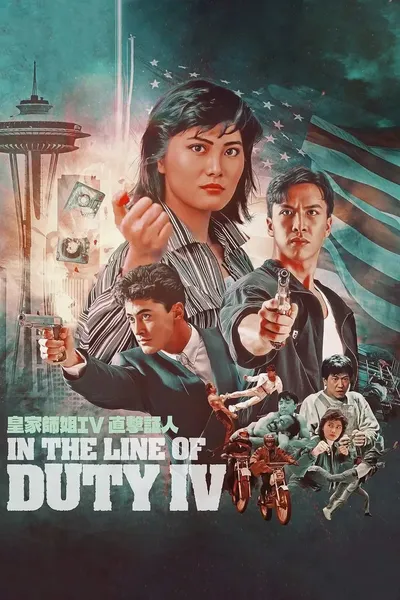
Given that it was directed by Yuen Woo-Ping (Iron Monkey, Wing Chun, The Tai Chi Master) and stars Donnie Yen, I had high hopes for In the Line of Duty IV. Of the first four In the Line of Duty films, this installment definitely has the highest amount of martial arts, as Yen, Cynthia Khan, and Yuen Yat-Chor (the brother’s director) face off against drug dealers, corrupt cops, and even the CIA. (On a side note, the film’s storyline was obviously inspired, in part, by the Iran-Contra affair.) The martial arts action is thoroughly enjoyable, as you’d expect given the names involved. Unfortunately, as with the other In the Line of Duty titles, this one suffers from a lack of focus. Sometimes it’s a gritty crime thriller, with Yen chewing up the scenery as a hot-headed cop not above beating up his suspects, and sometimes, it revels in antics that would probably be more at home in a Jackie Chan film.